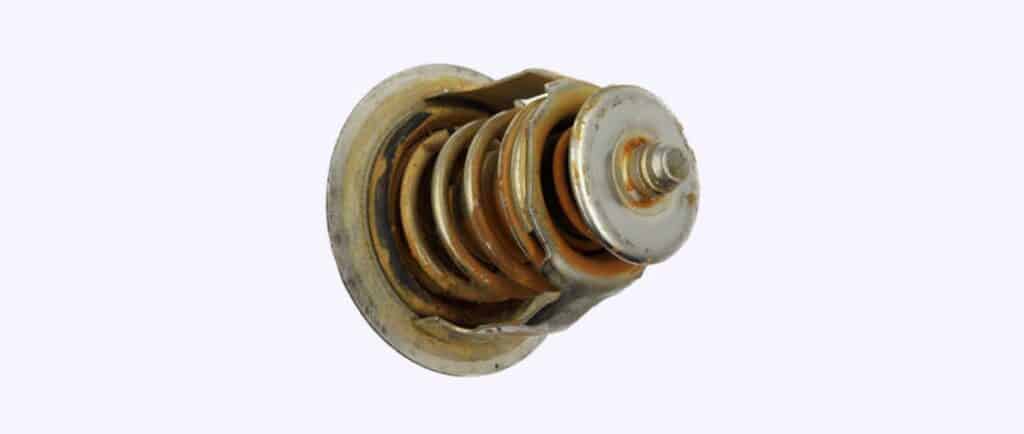Introduction to Car Thermostats and Their Role
A car’s thermostat is an essential component of the engine’s cooling system. Its primary function is to regulate the flow of coolant between the engine and radiator, maintaining an optimal operating temperature. When the engine is cold, the thermostat remains closed, allowing the coolant to heat up and the engine to reach its ideal temperature. As the engine warms up, the thermostat opens, letting the coolant flow through the radiator to prevent overheating. However, when the thermostat starts to malfunction, it can lead to a host of issues that can affect various parts of your car.
Recognizing a Faulty Thermostat
Recognizing a faulty thermostat is essential for maintaining the overall health of your car’s engine and its performance. One of the most common signs of a malfunctioning thermostat is an overheating engine. If you notice the temperature gauge on your dashboard creeping into the red or an engine warning light flashing, your thermostat may be stuck in the closed position. This malfunction prevents the coolant from circulating through the radiator, causing the engine to overheat. Ignoring this symptom can result in significant engine damage, necessitating expensive repairs.
Fluctuating temperature gauge readings are another indicator of a problematic thermostat. If the thermostat is stuck in the open position, the coolant will constantly circulate through the engine and radiator, preventing the engine from reaching its ideal operating temperature. This scenario can cause the temperature gauge to swing erratically between high and low, indicating an issue with the thermostat.

A drop in fuel economy can also point to a faulty thermostat. A thermostat that’s stuck open can cause the engine to run cooler than it should, leading to inefficient fuel combustion. This inefficiency results in your vehicle using more fuel to operate, translating to a decrease in miles per gallon (MPG). If you notice you’re making more frequent trips to the gas station, despite your driving habits remaining unchanged, it might be time to have your thermostat inspected.
Lastly, poor cabin heating or air conditioning performance can also suggest a malfunctioning thermostat. The engine’s heat is used to warm the interior of the car. If the thermostat is stuck open and the engine isn’t getting warm enough, your vehicle’s heating system may underperform. Conversely, if the thermostat is stuck closed, causing the engine to overheat, your car’s air conditioning system may struggle to combat the excess heat, making it harder to cool the cabin. These changes in cabin temperature control can be subtle, so it’s crucial to pay attention to any differences in heating or cooling performance.
Effects on the Engine
A malfunctioning thermostat can be stuck in either an open or closed position, both of which have negative consequences for the engine. A stuck-open thermostat causes the engine to run too cold, preventing it from reaching its optimal operating temperature. This can lead to increased wear and tear, reduced performance, and poor fuel economy.
On the other hand, a stuck-closed thermostat prevents coolant from flowing through the radiator, leading to engine overheating. Overheating can cause severe damage to critical engine components like the head gasket, cylinder head, and even the entire engine block. In extreme cases, an overheating engine may require expensive repairs or even complete engine replacement.
Impact on Fuel Economy and Emissions
A malfunctioning thermostat can have a significant effect on your car’s fuel efficiency. An engine that runs too cold or too hot will not burn fuel as efficiently, leading to increased fuel consumption. This not only hits your wallet but also contributes to increased emissions, which are harmful to the environment. Additionally, if your car’s emissions exceed legal limits, you may fail emissions testing and be required to repair the problem before your vehicle can be legally driven.
Effect on the Radiator and Cooling System
An improperly functioning thermostat can put a strain on the radiator and the entire cooling system. When the thermostat is stuck closed, it can lead to increased pressure and heat within the cooling system. This can cause the radiator to overheat, potentially resulting in leaks or even failure of the radiator itself. The increased pressure can also stress other components in the cooling system, such as hoses and water pumps, leading to premature failure and the need for costly repairs.

Implications for the Heater and Air Conditioning Systems
A faulty thermostat can also impact the efficiency and functionality of your vehicle’s heating and air conditioning systems. If the thermostat is stuck open, the engine will take longer to warm up, resulting in poor cabin heating performance during colder weather. Conversely, if the thermostat is stuck closed and the engine is overheating, the air conditioning system may struggle to keep the cabin cool, as it has to work against the excess heat generated by the engine.
Conclusion: Importance of a Well-functioning Thermostat
In conclusion, a properly functioning thermostat is critical to the overall health and performance of your car. A malfunctioning thermostat can affect not only the engine but also the fuel economy, emissions, radiator, cooling system, and even the cabin comfort systems like heating and air conditioning. Regular maintenance checks on the thermostat and other cooling system components are essential to prevent these costly issues and extend the life of your vehicle. By addressing potential problems early on, you can save money, protect the environment, and ensure a comfortable and enjoyable driving experience.
